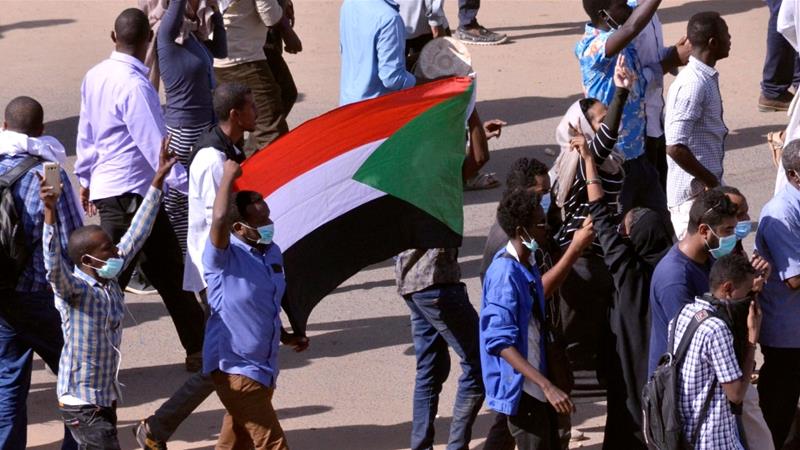Sudan must not be abandoned in crisis
Sequel to the worsening crisis in Sudan as manifest in the military’s unceasing violent suppression of street demonstrations, the country’s Prime Minister, Mr. Abdalla Hamdok, has resigned from office. In a televised address, Mr. Hamdok said the country was at a “dangerous turning point that threatens its whole survival”. He said he had tried his […]

Sequel to the worsening crisis in Sudan as manifest in the military’s unceasing violent suppression of street demonstrations, the country’s Prime Minister, Mr. Abdalla Hamdok, has resigned from office. In a televised address, Mr. Hamdok said the country was at a “dangerous turning point that threatens its whole survival”. He said he had tried his best to stop the country from sliding towards disaster, but that could not happen “despite everything that has been done to reach a consensus”.
At least, one person was killed in Khartoum, Sudan’s capital city, on Sunday, January 9, 2022, when security forces broke pro-democracy protesters. Roadblocks were mounted on roads to prevent the protesters from reaching the presidential palace or converging at the army headquarters; the epicenter of mass demonstrations that ended former President Omar Hassan Al-Bashir’s 30-year rule. The 26-year-old victim, according to the Central Committee of Sudanese Doctors, an independent group of medical workers, was killed after being struck in the neck by a tear gas sinister.
It would be recalled that after four months of persistent protests , which began on December 19, 2018, over increase in the price of bread and general misery in the country, the occupation of Al-Bashir’s residence by protesters, in their large numbers, on April 6, 2019, led to his ouster and a transition government that would oversee a return to democratic rule was formed.
Soon after the military’s unpopular intervention, which thwarted the transition government that succeeded Omar Al-Bashir’s regime, thousands of Sudanese have continued to take part in street rallies to express public rejection of the military rule orchestrated 11 weeks ago. It would be recalled that a military coup led by General Abdel-Fattah Al-Burhan on Monday October, 25, 2021, dislodged the transition government established after the overthrow of Omar Al-Bashir’s regime. The transition government was a power-sharing arrangement between the military and civilians.
After taking over power, Al-Burhan declared a state of emergency and placed the Hamdok along with ministers and civilian members of Sudan’s transitional government under arrest. Following widespread condemnations from global and regional organisations including the African Union, which suspended Sudan until a civilian-led transitional authority is restored in the country; Al-Burhan had to release Hamdok from detention and thereafter restored him as Prime Minister.
Although General Burhan claimed the takeover of power was to prevent a civil war from growing divisions among political groups, the continued street protests that have been rocking Sudan since Burhan installed himself as head of a military council that he said will rule Sudan until elections in July 2023 clearly illustrates the loss of confidence by Sudan’s pro-democracy movements in the military leadership of Al-Burhan who, they believe, may not hand over power to a democratically-elected government.
Hamdok’s recent resignation is a big blow to the military leaders who had thought an agreement with him would appease protesters and legitimise their stay in power. It also seeks to inspire several interrogations that challenge military legitimacy in power after staging a coup to frustrate the pact that gave birth to the country’s transitional government. If the military had really intervened to provide a solution to the political crisis in Sudan, why then have people continued with street protests for almost three months? Whose interest is the military protecting in its continuous crackdown on the civilian populace? All this further lends plausible credence to the insinuation among Sudanese people that the military is working for the interest of the ousted president, Al-Bashir.
As the political unrest in Sudan continues to linger, it is evident that the international community particularly the African Union, has failed to take adequate measures that would address the crisis. As a discernable lesson from this poor response, it is no longer realistic, especially for African countries to continue to permanently rely on interventions from regional organisations to resolve their internal crises. The two main sides in the current crisis must, therefore, take their fate into their own hands by resolving to sit together and dialogue to sort out their problems.
Nonetheless, Sudan must not be a victim of international politics; neither must it be abandoned in the crisis currently bedeviling it. While the intra-Sudanese political process recently announced by the Special Representative of the Secretary-General for Sudan and Head of UNITAMS, Mr. Volker Perthes, to support Sudanese stakeholders in agreeing on a way out of the current political crisis should be followed to a fruitful conclusion, the African Union must lead in every step that would be taken to avert the country from sliding into anarchy. Above all, it is time for the military in Sudan to end the violence and be part of an inclusive process that will restore peace in the country.
